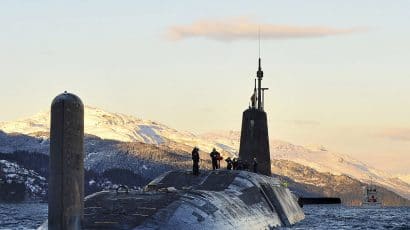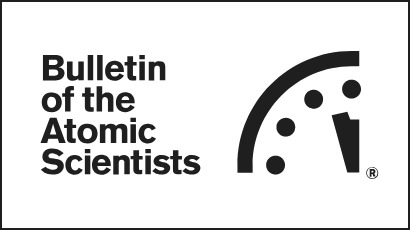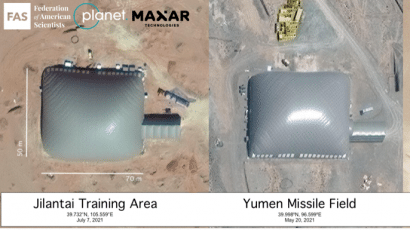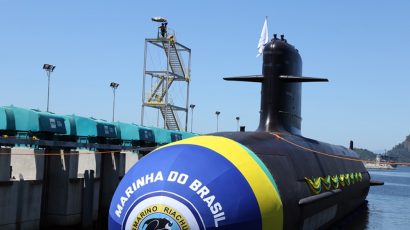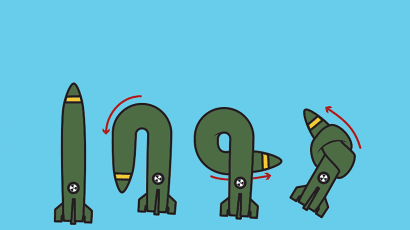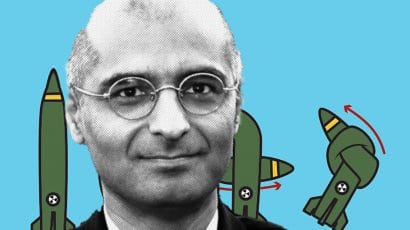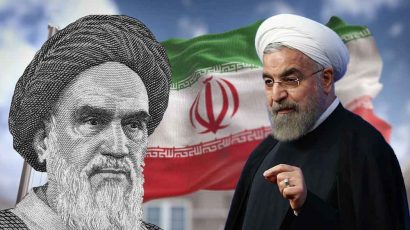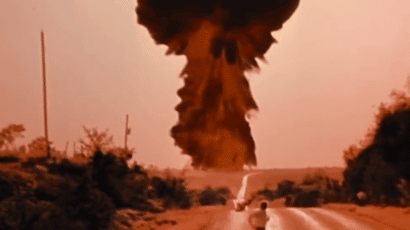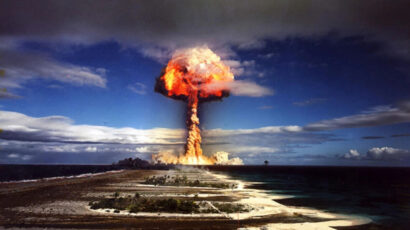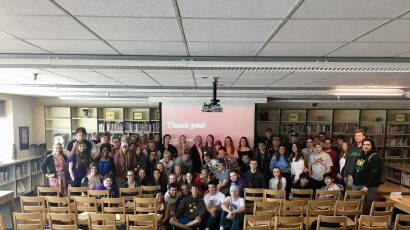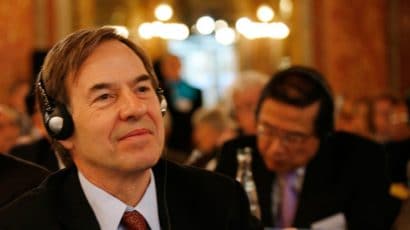Search results for
Of all the nuclear weapon states, the United Kingdom has moved the furthest toward establishing a minimum nuclear deterrent. The United Kingdom has a stockpile of approximately 225 nuclear warheads, of which up to 120 are operationally available for deployment on four Vanguard-class nuclear-powered ballistic missile submarines (SSBNs). This estimate is based on publicly available … Continued
Nuclear anxiety reappears in Yuba City
Sometimes when you stop for gas, you see the darndest things on the front page of the local paper.
Nuclear-security lessons from Australia
What Canberra has done—and can do—do to keep dangerous radioactive materials out of malicious hands.
China’s nuclear missile silo expansion: From minimum deterrence to medium deterrence
This summer, two nongovernmental organizations—our own included—disclosed construction of what appears to be hundreds of new missile silos in central China. How many silos? Why is China building so many? What does it mean for Chinese nuclear policy? And what to do about it?
Brazilian nuclear policy under Bolsonaro: no nuclear weapons, but a nuclear submarine
Last October, with 55 percent of the vote, Brazilians elected former army captain Jair Bolsonaro to a four-year term as president. He not only represents an ideological shift after 13 years of center-left administrations but also brings back members of the armed forces to a position of power more than 30 years after the end … Continued
Debunking nuclear security hype on the eve of the Nuclear Security Summit
There is too much sensationalism in coverage of nuclear security, which threatens to undermine real efforts to make us safer.
Transforming our nuclear future with ridiculous ideas
Success in limiting and eventually eliminating nuclear arsenals will rely on a revitalized nuclear policy field that recognizes greater diversity in all its forms, new partners willing to share knowledge and expertise, and bold new ideas—some of which, by design, will appear ridiculous at first.
Taking the nuclear ban treaty forward
Demands for nuclear disarmament—perhaps too sensitive a topic in the past—can now be brought up as a matter of course in diplomatic venues.
After the nuclear weapons ban treaty: A new disarmament politics
The new treaty creates space and means for a creative new disarmament politics based on law and ethics and democracy that goes beyond well-trodden debates on the dangers and costs of nuclear weapons and traditional practices of arms control based on step-by-step reductions that limit only the size of arsenals.
U.S.-Russian nuclear energy cooperation: A missed opportunity
The July Moscow summit didn't produce any significant breakthroughs in U.S.-Russian relations. In fact, it really only highlighted that the problems Moscow and Washington are ready to cooperate on are international, not bilateral, in nature (e.g., nuclear nonproliferation, terrorism, drug trafficking). On further strategic arms reductions--the most anticipated topic at the summit--the early results aren't as impressive as advertised.
As the Iranian nuclear deal loses a crucial backer, is it in danger of disintegration?
Iran’s most powerful figure, Supreme Leader Ayatollah Ali Khamenei, played a vital role in making sure his country’s diplomatic efforts to reach an agreement on its nuclear program were successful. More than a year after the deal was signed in Vienna, though, Khamenei is increasingly distancing himself from it, this week issuing his harshest criticism yet.
Hold your fire: Nuclear forces without counterforce
In April 2009, President Barack Obama outlined his vision for a world free of nuclear weapons before thousands of enthusiastic people in Prague's Hradcany Square. Development of the nation's new nuclear doctrine, documented in the Nuclear Posture Review (NPR), was subject to intense speculation in the popular press and, when the document was finally released -- for the first time unclassified in its entirety -- it became, if only briefly, a hot topic of political debate.
Making the threat of nuclear war personal: An exercise
A Stanford University professor who teaches a technology and national security class explains why one of his assignments asks students to provide a list of the names of some of the people that they know personally who would probably die, either immediately or within a week or two of a nuclear attack on their hometowns.
A small victory for nuclear justice. And international cooperation.
The UN General Assembly’s First Committee voted overwhelmingly for a resolution that would provide compensation for those who have been harmed by nuclear weapons. If approved by the General Assembly, the resolution will support information gathering and needs appraisal in affected states, followed by steps to assist victims and remediate contaminated environments.
The human cost of nuclear weapons is not only a “feminine” concern
In the male-dominated field of arms control, gender dynamics contribute to the sidelining of frontline communities, perpetuating the systems of oppression and marginalization that caused them to be harmed in the first place. Here’s how to change that.
American students aren’t taught nuclear weapons policy in school. Here’s how to fix that problem.
We expected students in colleges and high schools near Manhattan Project sites to have some foundational knowledge of nuclear weapons, their history, and current issues. We were wrong.
Why was the Sendai nuclear power plant restarted?
The decision to restart the reactor at Sendai is probably based upon the “dismal science:” economics.
Deconstructing U.S. funding for nuclear material security
One year ago, President Barack Obama made a bold pledge to "secure all vulnerable nuclear materials around the world within four years." His immediate follow-through, however, has been wanting. For instance, his fiscal year 2010 budget request to meet this goal was actually $200 million less than what the Bush administration allocated a year earlier for securing nuclear material abroad. In fact, the administration still hasn't defined what it actually considers vulnerable nuclear material. So, in essence, Obama has lost a full calendar year in his four-year quest.
The end of Japan’s nuclear taboo
Ever since the August 1945 atomic bombings of Hiroshima and Nagasaki, the Japanese people have possessed a strong aversion to the idea of nuclear weapons. Public discussion of developing nuclear weapons has been practically nonexistent, and politicians have been chastised for mentioning the topic: As recently as 1999, Japan's vice defense minister resigned after receiving overwhelming criticism for suggesting that Japan should arm itself with nuclear weapons.
Bruce Blair: Challenging the accidental nuclear war machine at every turn
With Blair’s death, the nuclear-disarmament movement has lost one of its most learned, creative and persistent leaders. Those of us who have had the privilege of working with him will continue to be inspired by his quiet but dogged and comprehensive commitment to the mission.
